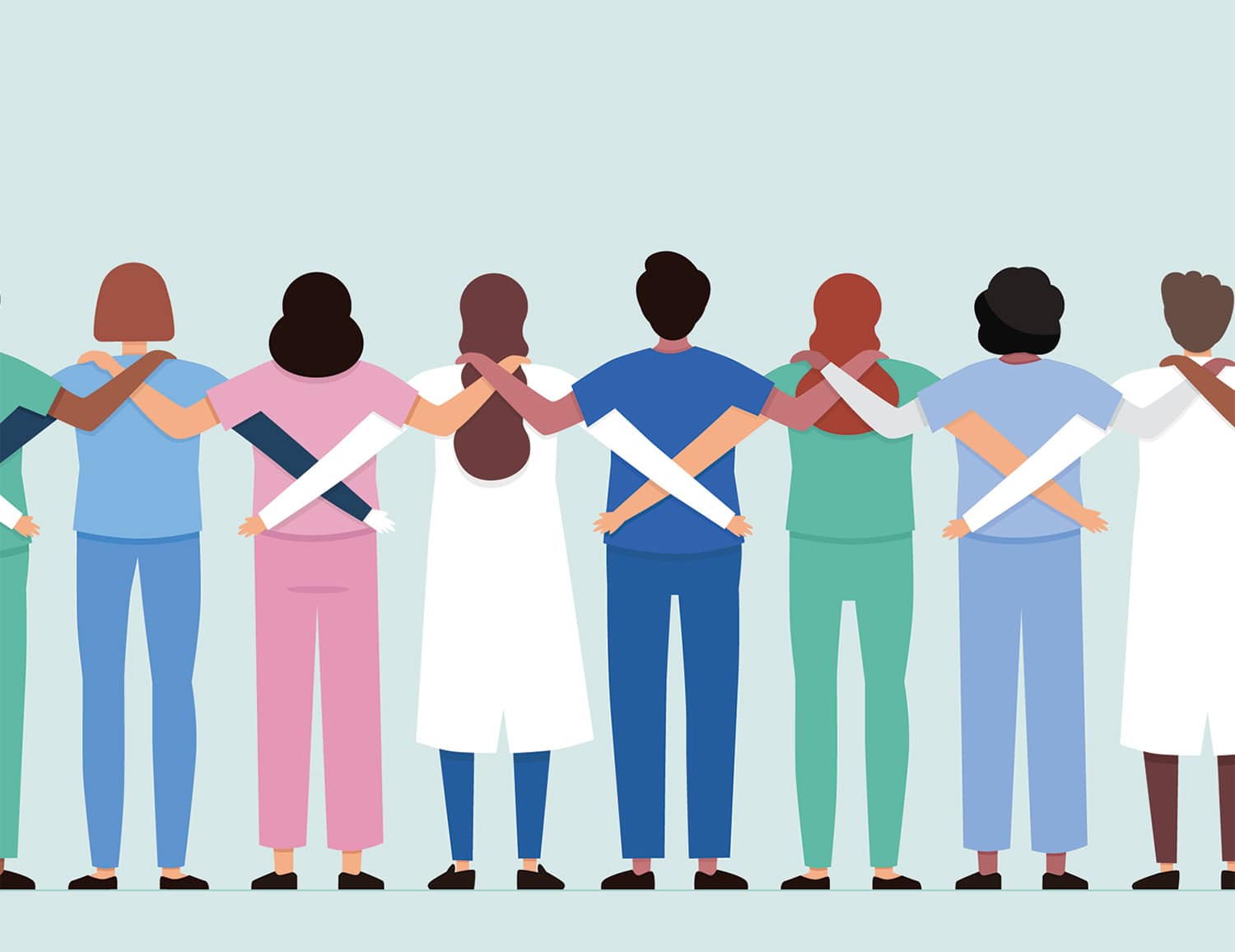
Trevan Lock, PhD
Photo by Dharm Patel
AS THE COVID-19 PANDEMIC emerged in the spring, American Association for Cancer Research (AACR) president Antoni Ribas, MD, PhD, recognized the need for cancer researchers to contribute their expertise to addressing the public health emergency. To coordinate the AACR’s response, Ribas formed the AACR COVID-19 and Cancer Task Force, which includes experts from all the disciplines relevant to COVID-19. (The AACR publishes Cancer Today.)
Throughout 2020, this task force has been working to address the
The pandemic created an unprecedented need for patients to access care via telehealth, but it also raised many questions about changes in practice. In a response to a request for information from the National Cancer Institute (NCI), the task force identified a series of research questions for cancer-related telehealth. These questions include:
- How can we compare and contrast the effectiveness of different telemedicine mechanisms (telephone, video or email)?
- How do we best integrate caregivers into telemedicine visits, including mechanisms for education, and how do we assess effects on patients’ health outcomes?
- Does the use of telehealth for some or all visits reduce stress burden on providers and patients?
This input will help the NCI direct their resources to the most important questions for utilizing telehealth in cancer care and research.
As the pandemic grew more severe, it became clear that clinical trials would have to adapt if they hoped to continue to accrue patients at the levels seen prior to the pandemic. To support this, the Food and Drug Administration released guidance on conducting clinical trials during the COVID-19 pandemic. This guidance provided flexibility for remote informed consent for trial participants, remote visits, home delivery of trial drugs and more. Cancer researchers and government agencies quickly realized that some of the changes in response to the pandemic could become permanent to enhance the efficiency and reach of clinical trials. Efforts are underway to identify through rigorous study which trial components from the pre-pandemic world are essential for effective trials and which might be adapted or done away with to streamline clinical trials and broaden participation while maintaining high standards. The task force is supporting these efforts by preparing journal articles and planning conferences.
The AACR has long been a leader in addressing cancer health disparities, and the task force recognized the harm the pandemic might do to recent gains in addressing this problem. Earlier this year, members of the task force published two peer-reviewed articles on this topic. The first outlined the benefits and risks of cancer screening in a pandemic and the particular dangers to underrepresented communities of missing screening appointments. The second highlighted the similarities and differences between health disparities observed in COVID-19 and those observed in cancer and discussed what steps and policies are needed to close those gaps.
Even as vaccines are distributed and the immediate effects of the pandemic eventually subside, researchers will need to continue studying the long-term impacts of COVID-19 on cancer care and treatment. The AACR will sponsor a second COVID-19 and Cancer virtual meeting Feb. 3-5, 2021, to follow up on data and discussion from the first meeting and look ahead to what research will be needed in the future.
Cancer Today magazine is free to cancer patients, survivors and caregivers who live in the U.S. Subscribe here to receive four issues per year.





